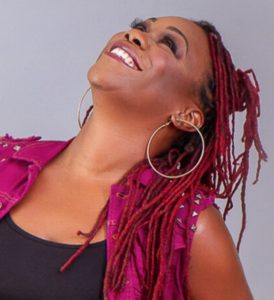Working and training as a Sex and Relationships Therapist – E4’s newest member to The Sex Clinic
Author: Charlene Douglas
 “I’m a Sex and Relationships Counsellor” I say. ‘oh, oh okay. Erm, that’s great! “Yep…erm..definitely something that’s needed” – the familiar response I receive when people (to include other counsellors) hear that my day job involves listening to issues related to sexual dysfunctions – erection issues, ejaculation difficulties, orgasm issues etc. The curious look of ‘I wonder what she knows about sex’ appearing on faces.
“I’m a Sex and Relationships Counsellor” I say. ‘oh, oh okay. Erm, that’s great! “Yep…erm..definitely something that’s needed” – the familiar response I receive when people (to include other counsellors) hear that my day job involves listening to issues related to sexual dysfunctions – erection issues, ejaculation difficulties, orgasm issues etc. The curious look of ‘I wonder what she knows about sex’ appearing on faces.
Even as I write this article, I am aware of how many times I have had to delete words that may be deemed offensive to some, but that simply describe sexual anatomy or pleasurable activities. Why have we become a nation so afraid to discuss sex? Yet, it is an experience that most of us engage in, on a regular basis –in fact, none of us would be here if it weren’t for our parents having sex.
Those brave enough to ask about my role, simply do “so what made you interested in sex therapy?”. I have more fun with my responses now, as I have perfected the art of responding with a straight face “I just have a fascination with sex” I say. Surprisingly I’m often met with dead silence.
But the truth to this question is… well, there are a number of reasons really. I’ve never been someone to follow the crowd. I recall working for organisations and being absolutely bored and uninspired. I rarely felt that I was actually helping people, but simply meeting targets set by senior managers who had no grasp of the reality of working with actual people. Of course, not every organisation in my past worked in this way, but most had an agenda that was not aligned with my values.
The black vs white Introduction to the World of Sex
Coming from a black culture, I am all too aware of the stigma around discussing topics of a sexual nature. I’m also aware that it isn’t just a ‘black problem’ – but a problem experienced by many races. Without conversations about wet dreams, erections, periods, sexual arousal, contraception etc, adults and children are left feeling vulnerable. They then access inaccurate information – from people who think they know, confusion develops, as well as intense feelings of shame and distress.
Our Caucasian school friends very often had the ‘birds and the bees’ talk with their parents. Many black children don’t expect this conversation to ever take place. Oftentimes black families don’t have these conversations. This could be for a number of reasons. Sometimes parents are not sure how to have these types of discussions with their children. Growing up, we knew better than to ask any questions relating to sex, so it was simply a case of learn-as-you-go-along. The older black female generation often reflects on the day they started their period. They recall their mother’s not talking to them or angrily telling them to stay away from boys because they can now become pregnant. Sex is then associated with fear and confusion, something dirty and wrong.
I was surprised by the response I received from black family and friends. Curious, inquisitive, but very supportive. There seemed to be a sense of relief that I could answer questions..that usually started with ‘so, if a man/woman….’ etc. Many black people that I know would never meet with a Sex Therapist, as it would feel too embarrassing for them. I find that my black clients feel more comfortable talking to me about their issues, as they feel culturally understood.
The response from some family members, however, changed when they realised that I would appear on E4 Sex Clinic. This confirmed my suspicion that some people still have a long way to go before they can work through their own discomfort with discussing topics of a sexual nature. I have been so surprised how many couples have never spoken to their partners about sex, sexual preferences, desires, or even past sexual experience. It all seems buried in a box of ‘dirty secrets’.
Sex-Education – Still In Need of Improvement
Sex in today’s society has become such a sordid topic, that little room has been left to be able to have the much-needed discussions around sexual issues, intimacy, boundaries, porn addiction etc, yet people are suffering in silence, all because they don’t know the techniques that they can try to resolve the issue or simply what their next step is.
Although sex -education in schools has improved, with a system still referring to the vulva as the vagina and many people still believing that the clitoris is only the little visible ‘bud’, we are still a long way off from teaching young people about what sex really is.
In fact, for many of us adults, we were those young people years ago, in a school that set aside one hour, separating the boys from the girls and teaching a very basic, and mostly useless version of sexual relationships and the reproductive system. This topic then became the hot topic in the playground as children exchanged their versions of sex, that they had acquired over the years. No-one really being sure which version was accurate.
My role as a Sex and Relationships Therapist
So, a great deal of my work is to help people to understand what their sexual bodily parts do and how to have a sexual experience that feels right for them. This alone can help to reduce anxiety. Anxiety can have a profound effect on how/if the brain sends the right messages to the different parts of the sexual anatomy. For example, if blood isn’t able to freely flow to the penis, then issues such as erectile dysfunction can occur. Important to note here though, that medical advice via a GP for any sexual dysfunction should be sought in the first instance to rule out a medical issue.
It’s an extraordinary role to have, to work with clients who have been struggling with a lack of sexual desire, premature ejaculation, vaginismus etc for a long time, and to then see the positive effect it has on their self-esteem and relationships once they’ve understood what the psychological cause of their problem is – sometimes in as little as 6 sessions. I’ve noticed an increase in black people/couples accessing my service. I am proud to be one of the few black, Sex and Relationships Therapists, and I hope one day soon there will be more of us.
What to do to understand our Sexual Anatomy and where to go if we have a sexual problem.
So how can we learn more about our bodies and in particular the way it functions sexually? Well, the first suggestion I’d give would be to look at your body in the mirror, become familiar with your body and understand what it can do. So many people have never actually looked at themselves naked in the mirror. It’s important that we become familiar with how our body looks/responds to touch, to be able to recognise if there are any noticeable changes. People can get in touch with Psychosexual Therapists, either privately or via the NHS. The waiting times via the NHS can be anything between 2-9months wait, meeting with a private therapist can mean you can, of course, have an appointment within weeks or days. In the first instance, though, GUM clinics provide great sexual health support and also have short-term/one-off sessions available with a Psychosexual Therapist.
For more help/guidance in sexual therapy – feel free to get in touch with me. Information about my services can be found on my website www.theintimacycoachuk.com.

Hi Charlene, I agree with this post completely. As hypnotherapist and counsellor of 20 years plus. I have had many clients with sexual problems come to see me. Very few can talk openly about their problem. They might come to see me for something very insignificant. Sometimes, even spend two or three sessions before they came out with the real reason they are here. Or start talking about their anxiety or self-esteem and then suddenly blurt out the sex problem they have. I also have to be careful how I ask some personal questions, as they can get quite shocked at some questions. It is often the inability to talk frankly and openly about sex that causes their problems in the first place. Thank you for bringing this subject up.